BMW iX1 vs Renault Mégane – Differences & prices compared
Compare performance, boot space, consumption and price in one view.
Find out now: which car is the better choice for you – BMW iX1 or Renault Mégane?
The BMW iX1 (SUV) comes with a Electric engine and Automatic transmission. In comparison, the Renault Mégane (SUV) features a Electric engine with Automatic transmission.
When it comes to boot capacity, the BMW iX1 offers 490 L, while the Renault Mégane provides 389 L – depending on how much space you need. If you’re looking for more power, decide whether the 313 HP of the BMW iX1 or the 218 HP of the Renault Mégane suits your needs better.
In terms of consumption, the values are 15.80 kWh per 100 km for the BMW iX1, and 15.40 kWh for the Renault Mégane.
Price-wise, the BMW iX1 starts at 41800 £, while the Renault Mégane is available from 35100 £. Compare all the details and find out which model fits your lifestyle best!
In the realm of electric SUVs, the BMW iX1 offers a luxurious experience with its cutting-edge technology and premium materials, targeting those who value performance and sophistication. On the other hand, the Renault Mégane E-Tech Electric provides an attractive package for the ecologically conscious driver, emphasizing practicality with a more budget-friendly approach while still delivering commendable range and efficiency. Both models cater to different market segments, yet they push the boundaries of what consumers can expect from electric mobility.
BMW iX1
The BMW iX1 stands out as a versatile addition to the electric vehicle market, seamlessly combining compact dimensions with advanced electric technology. Its sophisticated design elements and premium interiors ensure a luxurious driving experience, while the vehicle's performance focuses on delivering both efficiency and agility. With enhanced connectivity features and an emphasis on sustainability, this model represents a significant step forward in BMW's commitment to a greener future.
details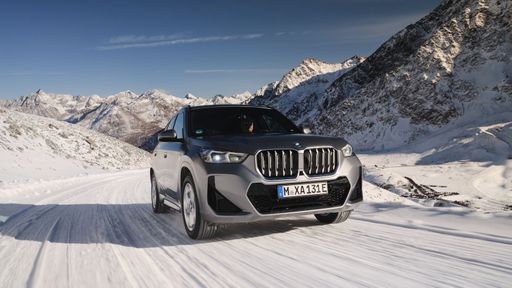 @ press.bmwgroup.com
@ press.bmwgroup.com
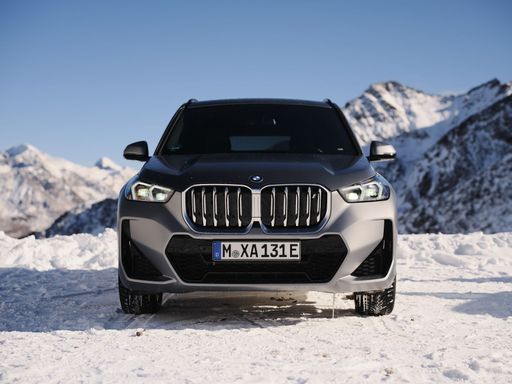 @ press.bmwgroup.com
@ press.bmwgroup.com
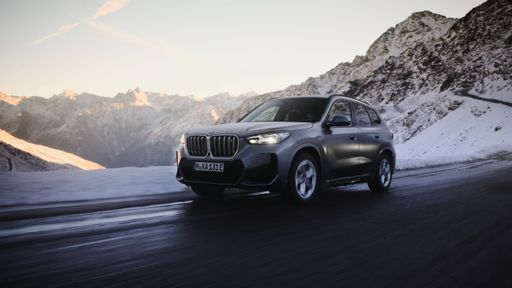 @ press.bmwgroup.com
@ press.bmwgroup.com
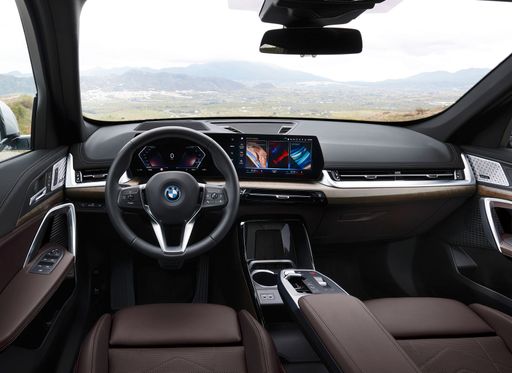 @ press.bmwgroup.com
@ press.bmwgroup.com
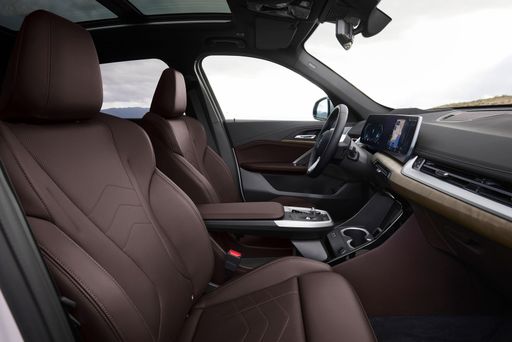 @ press.bmwgroup.com
@ press.bmwgroup.com
Renault Mégane
The Renault Mégane stands out in the hatchback segment with its chic design and advanced technology features. Its interior offers a spacious and comfortable environment, providing both driver and passengers with a premium experience. Combining impressive handling with economical efficiency, the Mégane caters to those seeking style and practicality in their daily commute.
details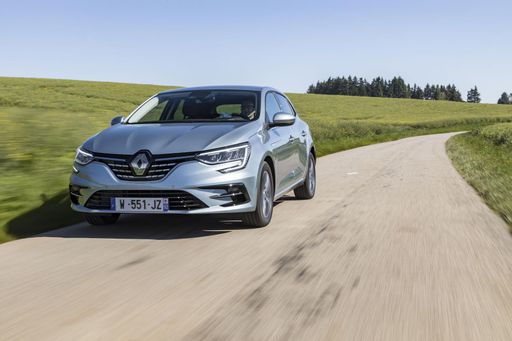 @ Renault
@ Renault
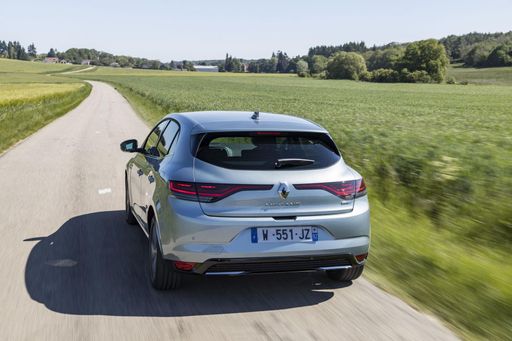 @ Renault
@ Renault
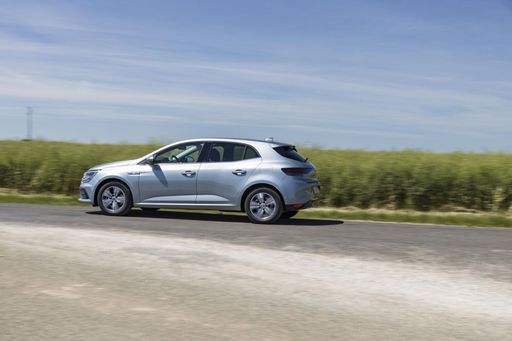 @ Renault
@ Renault
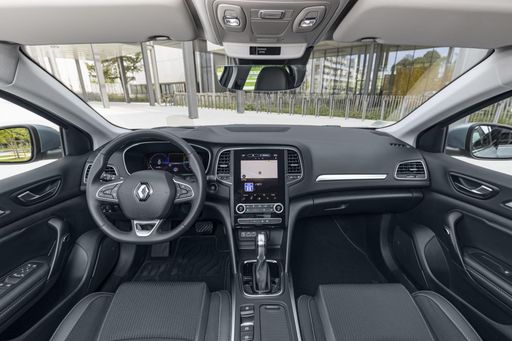 @ Renault
@ Renault
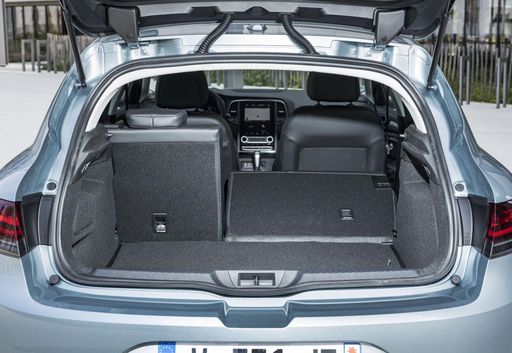 @ Renault
@ Renault
The Electric Duel: BMW iX1 vs Renault Mégane
In the rapidly electrifying world of automotive technology, two contenders have emerged as frontrunners in the compact SUV segment: the BMW iX1 and the Renault Mégane. Both embody fresh innovations and cutting-edge technology that appeal to drivers looking for environmentally friendly options paired with quintessential European style. But how do they stack up against each other in terms of performance, design, and practicality? Let's dive into the technical aspects and innovations that these two models bring to the table.
Performance and Efficiency
The BMW iX1 and Renault Mégane are both engineered for performance but differ significantly in their approach and execution. The iX1 offers two powertrain options: a 204 HP front-wheel-drive and a more robust 313 HP all-wheel-drive variant. This allows drivers the choice between efficient urban commuting and spirited, more dynamic driving experiences. The iX1 accelerates from 0 to 100 km/h in just 5.6 seconds with the more powerful setup, while maintaining a commendable electric range of up to 463 km.
In comparison, the Renault Mégane's powertrains top out at 218 HP, with a balanced approach towards both performance and economy. Sporting a 0 to 100 km/h acceleration time of 7.4 seconds in its fastest configuration and a range of up to 460 km, the Mégane stands as an efficient choice with slight compromises on speed for a more cost-effective experience. Both models boast a CO2 efficiency class of 'A' and have zero emissions, reflecting their commitment to sustainability.
Design and Interior Comfort
While their performance figures are impressive, aesthetics and comfort play a crucial role in choosing a vehicle. The BMW iX1 embodies a muscular stance with dimensions measuring 4500 mm in length, 1845 mm in width, and 1616 mm in height. Its trunk capacity is a generous 490 L, making it practical for families and those who often travel with larger loads.
The Renault Mégane, slightly more compact at 4200 mm in length, 1768 mm in width, and 1505 mm in height, offers a trunk capacity of 389 L. While it may be smaller in size, the Mégane compensates with its sleek design and efficient use of space, offering a comfortable ride and easy maneuverability in urban settings.
Innovations and Technology
BMW and Renault have both incorporated state-of-the-art technology in their electric SUVs. The iX1 is equipped with a sophisticated infotainment system and the latest driver assistance systems, reflecting BMW's focus on providing a connected and safe driving experience. The reduction gearbox and the flexible option for either front-wheel or all-wheel drive highlight BMW's emphasis on driving dynamics and adaptability.
Renault's Mégane, on the other hand, offers a user-friendly driving experience with intuitive controls and a minimalist interior design that houses cutting-edge tech. The efficient consumption rates, ranging from 14.9 to 15.4 kWh/100 km, demonstrate Renault’s continual push towards optimizing energy usage without compromising on performance or comfort.
The Verdict
Between the BMW iX1 and the Renault Mégane, car enthusiasts and potential buyers face a choice dominated by personal preferences and specific needs. If you seek a vehicle that offers a stronger performance profile with multiple power options and a focus on luxury and adaptability, the BMW iX1 may be the perfect choice. However, if efficiency, affordable performance, and smart urban design are your top priorities, the Renault Mégane stands out as a compelling alternative.
Both vehicles represent the forefront of electric SUV innovation, making them worthy contenders in an increasingly competitive market. The ultimate choice hinges on how their unique offerings align with your lifestyle and values as a driver.

|

|
|
|
|
Costs and Consumption |
|
|---|---|
|
Price
41800 - 54600 £
|
Price
35100 - 38500 £
|
|
Consumption L/100km
-
|
Consumption L/100km
-
|
|
Consumption kWh/100km
15.8 - 17.1 kWh
|
Consumption kWh/100km
15.40 kWh
|
|
Electric Range
436 - 463 km
|
Electric Range
452 km
|
|
Battery Capacity
64.80 kWh
|
Battery Capacity
-
|
|
co2
0 g/km
|
co2
0 g/km
|
|
Fuel tank capacity
-
|
Fuel tank capacity
-
|
Dimensions and Body |
|
|---|---|
|
Body Type
SUV
|
Body Type
SUV
|
|
Seats
5
|
Seats
5
|
|
Doors
5
|
Doors
5
|
|
Curb weight
1940 - 2085 kg
|
Curb weight
1719 kg
|
|
Trunk capacity
490 L
|
Trunk capacity
389 L
|
|
Length
4500 mm
|
Length
4200 mm
|
|
Width
1845 mm
|
Width
1783 mm
|
|
Height
1616 mm
|
Height
1505 mm
|
|
Payload
495 kg
|
Payload
446 kg
|
Engine and Performance |
|
|---|---|
|
Engine Type
Electric
|
Engine Type
Electric
|
|
Transmission
Automatic
|
Transmission
Automatic
|
|
Transmission Detail
Reduction Gearbox
|
Transmission Detail
-
|
|
Drive Type
Front-Wheel Drive, All-Wheel Drive
|
Drive Type
Front-Wheel Drive
|
|
Power HP
204 - 313 HP
|
Power HP
218 HP
|
|
Acceleration 0-100km/h
5.6 - 8.6 s
|
Acceleration 0-100km/h
7.40 s
|
|
Max Speed
170 - 180 km/h
|
Max Speed
160 km/h
|
|
Torque
250 - 494 Nm
|
Torque
300 Nm
|
|
Number of Cylinders
-
|
Number of Cylinders
-
|
|
Power kW
150 - 230 kW
|
Power kW
160 kW
|
|
Engine capacity
-
|
Engine capacity
-
|
General |
|
|---|---|
|
Model Year
2022 - 2023
|
Model Year
2025
|
|
CO2 Efficiency Class
A
|
CO2 Efficiency Class
A
|
|
Brand
BMW
|
Brand
Renault
|
BMW iX1
A New Era of Innovation: Meet the BMW iX1
The automotive world has seen a seismic shift towards sustainability and electrification, and BMW has solidified its place in this evolution with the introduction of the BMW iX1. As a fully electric SUV, the iX1 serves as a testament to how luxury, performance, and eco-consciousness can harmoniously blend in the modern automotive landscape.
Exquisite Design Meets Purposeful Engineering
The BMW iX1 is not just an electric vehicle; it's an embodiment of cutting-edge design and technology. With its bold SUV silhouette, the iX1 boasts dimensions of 4500 mm in length, 1845 mm in width, and 1616 mm in height, providing a spacious yet agile presence on the road. Its dynamic aesthetic is complemented by an aerodynamic form that enhances efficiency, offering a drag coefficient that rivals traditional SUV models.
Powertrain and Performance Specifications
Beneath the hood of the BMW iX1 lays an electric motor that signifies the future of automotive engineering. Available variants offer power outputs ranging from 204 to 313 PS (150 to 230 kW). The iX1 comes with either a front-wheel or all-wheel drivetrain, catering to different driving preferences. The xDrive30 variant, in particular, features all-wheel drive, delivering up to 313 PS for those who crave enhanced traction and control.
With a commendable electric consumption of 15.8 to 17.1 kWh per 100 km, the iX1 strikes a fine balance between power and efficiency. Its acceleration stats are equally impressive, with the ability to go from 0-100 km/h in as little as 5.6 seconds. This ensures that while it's eco-friendly, it does not compromise on the exhilaration factor. The vehicle can reach a top speed range between 170 and 180 km/h.
A Journey Without Interruptions: Range and Battery Life
The iX1's battery, boasting a capacity of 64.8 kWh, provides a substantial driving range of 436 to 463 km on a single charge, depending on the variant. This means long road trips are not only feasible but enjoyable, eliminating the range anxiety often associated with electric vehicles.
Comfort and Technological Interior
Inside, the iX1 exemplifies BMW’s commitment to luxury and innovation. It’s a five-seater SUV designed with comfort at its forefront, featuring advanced technological interfaces that enrich the driving experience. The spacious cabin offers 490 litres of boot space, ensuring practicality without sacrificing style.
In terms of monthly costs, owning an iX1 can range between €1,147 and €1,453, considering the zero-emission appeal with a CO2 efficiency class of A.
The Financial Aspect of Sustainability
With a price range from €48,400 to €63,140, the BMW iX1 isn't just a vehicle—it's an investment in sustainable motoring. Factoring in a cost of around 45.9 to 58.1 cents per kilometre, the iX1 offers an economically viable option for the eco-conscious driver.
Conclusion: The Future Is Now
The BMW iX1 stands as a beacon of what the future holds for zero-emission vehicles. With a melding of sustainability, performance, and luxury, it's not just a car, but a glimpse into the next chapter of automotive history.
Renault Mégane
Breaking New Ground: The Latest Renault Mégane Models
The Renault Mégane has long been a staple in the line-up of urban-centric and energy-efficient vehicles. As the world leans more towards sustainable driving, the latest models of the Renault Mégane continue to push the envelope with its innovative features and technical prowess.
Innovative Powertrain: The Heart of Mégane
The latest Mégane series comes equipped with an electric motor, offering a performance range of 130 to 218 PS (96 to 160 kW). This ensures that drivers not only benefit from emission-free motoring but also from robust performance figures, with a torque ranging between 250 to 300 Nm. The models are designed to provide a seamless driving experience with their automated front-wheel-drive system.
Efficiency Meets Performance
These Mégane models boast electric consumption figures from 14.9 to 15.4 kWh/100 km, impressive for their class, and are capable of achieving a range between 308 to 460 km on a single charge. The acceleration from 0-100 km/h varies between a peppy 7.4 seconds to a more leisurely 10.5 seconds, depending on the variant, all while maintaining a top speed of 150-160 km/h.
Modern Appeal with Practical Design
Renault’s attention to design is evident in the Mégane's contemporary aesthetic. Whether you opt for the Equilibre, Evolution, Iconic, or Techno trim, each is packed with thoughtful features ensuring comfort for its five passengers and a reasonable boot capacity of 389 litres. The sleek SUV silhouette runs 4,200 mm in length and 1,768 mm in width, giving it a commanding road presence without compromising on practicality.
Cost Efficiency with Zero Emissions
With prices ranging from €35,600 to €45,900, the Renault Mégane offers a competitive edge in its segment. Additionally, the monthly operating costs sit comfortably between €914 and €1,092. The absence of emissions—at 0 g/km—further places these models in the coveted CO2 efficiency class of A, making them a thoughtful choice for environmentally conscious urban drivers.
Conclusion
The Renault Mégane models stand as a testament to the brand's commitment to innovation, efficiency, and style. With its competitive range, pricing, and features, it efficiently caters to the modern driver's needs, balancing power, efficiency, and sustainability seamlessly.
Which drive types are available for the BMW iX1?
Available as Front-Wheel Drive or All-Wheel Drive.
The prices and data displayed are estimates based on German list prices and may vary by country. This information is not legally binding.
